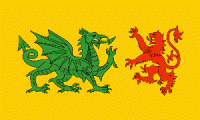0














| Thumbs Up |
| Received: 85 Given: 0 |

SourceBy Lt-Col. J.A. Garton, M.C., D.L., J.P.
(Printed in "The Doones", L.B. Thornycroft, Cider Press, 1971)
THE Dialects spoken by the rural communities in the counties of
England are the foundations of the English language. A sound
foundation is as necessary for a language as for a building, and
though it may not have the finish and decoration of that which is
subsequently built on it, it would be ungrateful to forget its
existence, and unwise to overlook its importance. Of course these
dialects have not remained absolutely in their original forms,
though it is remarkable how little the old speech has changed in
those districts whose remoteness has saved them from modern
influences.
Somerset is a large county and there are many variations of
the dialect. The following remarks refer to the east central
district, where from the southern slopes of Mendip to the south
eastern boundary, and to the river Parrett in the west, there is
a considerable measure of uniformity, and the old speech is less
affected by pre-Saxon and post-Saxon influences. These
observations refer to the county of Somerset, but in some
respects they may be applicable to other counties. Their object
is to rectify certain misconceptions and stimulate interest
rather than to claim any technical qualities.
There are sixty-nine words in the Lord's Prayer:sixty-four
of them are Anglo-Saxon. The dialect of Somerset is Anglo-Saxon,
and to give some idea of its origin it is necessary to take a
brief survey of the early history of this part of the country.
During the Roman occupation, Somerset was inhabited by two
races, the Brythons and the Belg‘, generally spoken of
collectively as the early Britons. These people were eventually
conquered, though not exterminated, by the Saxons, who remained
their masters until they, in turn, became the serfs under the
Normans.
It is generally agreed that the English language derives
little from the Romans, in spite of the fact that their
occupation lasted more than 300 years. In support of this theory,
a Somerset man will always avoid using words of Latin origin if
he possibly can, but when he does, he probably pronounces them
wrongly and uses them in the wrong sense. If he wants to say an
old man has kept all his faculties, he is quite likely to say
'He've a-kep all uz fallacies.' This doesn't mean that he is
ignorant of his own language, but of a foreign one, affected by a
comparatively small number of people who received their education
in the monasteries. The introduction of words and phrases from
other languages has not always improved our own, and it is often
unnecessary. It is quite good to say, 'I bin looken out var'ee,'
as 'I've been expecting you' (ex = out, specto = I look). Rural
life and occupations change very little, and simple language is
sufficient for simple needs.
The Danes did not influence the language in Somerset very
much, though recently a Danish word like plough may have
superseded the older word zool.
The Saxon invaders came over in clans, each clan speaking a
separate dialect of the same language, and the county dialects
still mark, roughly, the districts in which each settled. In
Somerset they drove the British westwards, not all at once, but
in stages, and this is why the dialect west of the Parrett has
more Celtic in it. In eastern and central Somerset, the language
became practically Anglo-Saxon, but in the west the process was
gradual, and when after many years it was adopted, it was spoken
with a Celtic accent. This is very marked in the Devonshire 'U'.
The conquest was one of absorption rather than extermination, and
a considerable number of British remained on the land as serfs
under the Saxons. So we find many agricultural words in the
dialect are Celtic, such as ted - to shake out hay, bastick - a
basket, wo - command a horse to stop, fagot, matock, etc. This
combined language is the Anglo-Saxon of Somerset.
Much the same thing happened when the Normans came. Animals,
while alive on the farms, were looked after by the Saxons, who
continued to speak of them in their own language as cows, calves,
sheep, swine, etc. When killed, the fresh meat was monopolized by
the Normans who substituted their own names, b uf, veau, mouton,
porc, and so it has remained, beef, veal, mutton, pork. There is
one exception, the salted flesh of the pig, for which the Normans
probably had no use, was the food of the serfs, and they called
it bacon, from the Angl-Saxon becken - a beech tree, because the
flesh of pigs fed on beech-mast is firm, and makes good bacon.
The dialect is not, as some people suppose, English spoken
in a slovenly and ignorant way. It is the remains of a language -
the court language of King Alfred. Many words, thought to be
wrongly pronounced by the countryman, are actually correct, and
it is the accepted pronunciation which is wrong. English
pronounces W-A-R-M worm, and W-O-R-M wyrm; in the dialect W-A-R-M
is pronounced as it is spelt, Anglo-Saxon W-E-A-R-M. The Anglo-
Saxon for worm is W-Y-R-M. Polite English pronounces W-A-S-P
wosp; the Anglo-Saxon word is W- -P-S and a Somerset man still
says WOPSE. The verb To Be is used in the old form, I be, Thee
bist, He be, We be, Thee 'rt, They be. 'Had I known I wouldn't
have gone', is 'If I'd a-know'd I 'ooden never a-went'; 'A' is
the old way of denoting the past tense, and went is from the verb
to wend (Anglo-Saxon wendan). Infinitives are often formed by the
addition of y; 'I can thatch' is 'I d'thatchy'; 'I must go and
milk' is 'I must milky'.
When well spoken, the dialect is pleasant to listen to. It
is well suited for expressing the subtle humour and simple
philosophy of the lovable people who use it, and in whose minds
and speech, treasures of the past which would otherwise be lost,
are preserved.












| Thumbs Up |
| Received: 85 Given: 0 |

[YOUTUBE]bBvUfLUtaXM[/YOUTUBE]














| Thumbs Up |
| Received: 53 Given: 29 |

Among many other interesting things, I am to quote this which sustains the fact that writing-speaking divergences into languages are a result of succesful fonetical errors (maybe commited by succesful conquerors) at some point of its historical course.
The bizarre things is many foreign learners of English start doing right. I have so little experience in reading English loud that I still do.Many words, thought to be wrongly pronounced by the countryman, are actually correct, and it is the accepted pronunciation which is wrong.
















| Thumbs Up |
| Received: 3,469 Given: 8,126 |

antonio, the little mistakes really do not matter, but I could almost cry when I cannot understand you.
There have been a couple of times when you sounded like a feedback loop in my mind.
Lettuce, Gruyere, Bacon and Tomato Pride, WorldWide!!


There are currently 1 users browsing this thread. (0 members and 1 guests)
 England
England
 England
England
 Nederland
Nederland
Bookmarks